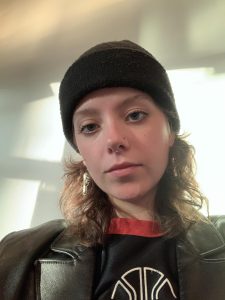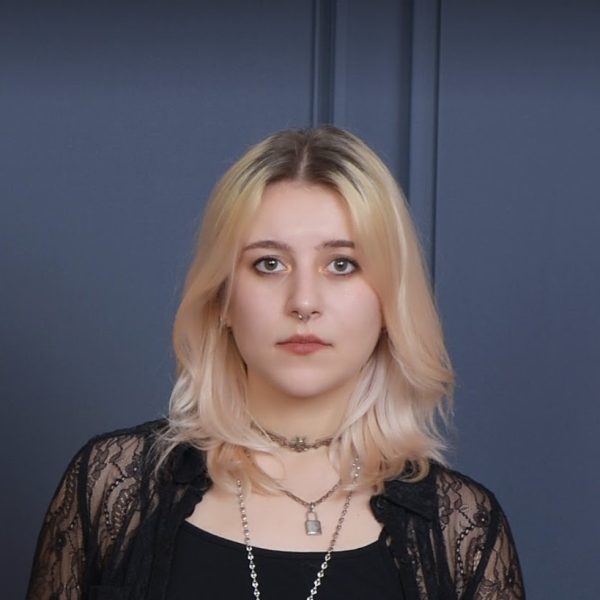In a slew of censorship pushed by the United States government and mostly U.S.-based media companies, Meta’s new political content filter poses the most recent cause for outrage.
The update comes at a time when social unrest and political upheaval threaten those in power for their continuous transgressions against oppressed peoples of the world. Those outraged at Meta’s political content filter must understand the broader implications of U.S. censorship here and abroad.
Inherent Bias
Meta automatically enrolled all users in their new feature without proper notice or individual consent. The setting automatically limits the amount of political content users see from accounts they don’t follow, meaning the content of users’ explore pages could drastically change. In other words, people must now opt in to seeing posts that Meta deems political.
Politicians have jumped on the opportunity to frame this as a danger to the elections. But the real reason for censorship is rooted in attempts to stifle organizing in the U.S.
Censorship ran rampant with the Black Lives Matter protests of 2020. It runs rampant now with the Free Palestine movement.
“I think it’s really interesting how this filter comes during a time where it’s the first time ever we’re witnessing a genocide on our phones, right?” said Ermiya Fanaeian, an organizer with Armed Queers SLC. “It’s coming during a time where the atrocities that are happening in Gaza, and how the United States is helping aid that, are things that we can see just through Instagram.”
The tireless work of Free Palestine organizers has seemingly spooked politicians and companies alike into comprehending the power of free-flowing information. This lesson currently manifests as Meta’s new political content filter.
U.S.-based Instagram defines political content as “likely to mention governments, elections, or social topics that affect a group of people and/or society at large.” This broad definition of political content has the potential to silence certain voices. The U.S. considers some people to be inherently political. For example, those with Black, Palestinian or queer identities.
Meta also plans to introduce this filter on Facebook, which has already committed acts of censorship. Claiming fraud, it disabled the account of Motaz Azaiza, a Palestinian who consistently shares on social media the atrocities that Palestinians face.
A Diverse Censorship Portfolio
The censorship of Azaiza is just one prominent example of the growing backlash against anyone who dares speak out against the oppressive systems the U.S. maintains across the world.
There has been “a new rise in people all over the country organizing in favor of Palestine, and of course, organizing in many different struggles — the queer and trans struggle, the struggle against police, the struggle for housing rights, the struggle for unionization around the country,” Fanaeian said. “… There has also been McCarthyite attacks against these organizers from the state, from university institutions, and of course from the police.”
In the past few years, censorship has hit from every angle, most visibly in the online sphere. For example, Florida banned social media for kids under 14 without parental consent. While the bill itself is terrifying, perhaps more concerning is how some have celebrated it as a measure to protect children. In reality, it’s a sly maneuver to test the waters of full-blown authoritarian censorship. Youth are a major driving force for political activism. They often look to social media for activist and queer spaces when their homes are not safe.
Presently, TikTok also faces a risk of being banned in the U.S.
Social media has become a main news source for many users. Censorship on these apps limits the spread of vital information about social issues.
However, it’s important to understand these aren’t inconsequential feuds. Battles over online spaces and access are one part of a very concerning picture. Fanaeian discussed the real-life and legislative aspects of political censorship. Fanaeian cited the silencing of student groups on university campuses and a 2024 Utah resolution against socialism and communism. The bill, similar to a previous U.S. resolution, emphasizes the McCarthyist attitude that never really went away.
“We’re seeing all of these state-mandated efforts and initiatives to stop and derail popular people’s struggles, and really, in many instances, make it illegal to even mention it in the classroom, in the workspace, or anywhere else in which we can organize people,” said Fanaeian. “There’s really a huge wave all over the nation of anti-DEI bills being introduced, and, of course, any kinds of mention of the genocide that’s happening in Palestine.”
Michael Valentine, a candidate for Salt Lake County Mayor, described similar censorship of those calling for a ceasefire in Palestine at city council meetings.
“Instead of passing a ceasefire resolution, standing against genocide, standing for human rights, the mayor and the city council here have basically almost banned public comments,” he said, referring to the time limit added to the public comment section of Salt Lake City Council meetings in March. “We only have an hour to come in now, which is, I think, a direct violation of everyone’s constitutional rights in the city.”
Fighting Against Censorship
Before this wave of censorship, accessible news content enlightened the public about national and global policies like never before. Well-informed American voters know that no matter the election outcome, their president will remain a self-interested criminal. Large percentages of citizens voting uncommitted are evidence of this, Valentine said.
This censorship isn’t about elections — it’s about filtering out U.S.-perpetrated global suffering such as the genocide in Gaza. Censoring Palestinian content and those who speak out for Palestine allows others to further deny the genocide. It makes it harder for concerned citizens to make a difference in the face of injustice.
“We have a right to freedom of speech. And these tech companies need to maintain that,” said Valentine.
Likewise, when Americans become aware of censorship, they have a responsibility to fight against it.
“It starts with us organizing,” said Fanaeian, emphasizing the importance of doing so outside of the workplace and the university. Additionally, she said, people must organize within their communities without relying on official forums that can censor them.
As Fanaeian beautifully put it, “History has shown that we’ve prevailed, our ideas can consistently inspire people and they are capable of mobilizing people for decades and decades and decades. So you can try to censor people, but you can never censor the ideas.”





